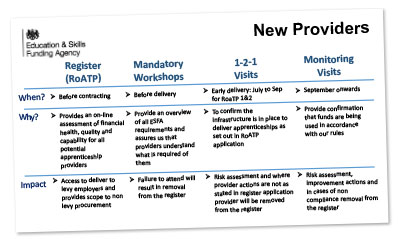The area reviews are a disaster slowly unfolding before our eyes, claims Jonathan Brash, who believes the process was motivated by cuts alone
Hopelessly flawed and done for the wrong reasons. That’s the only rational assessment we can make of the government’s ill-fated area review programme.
Hartlepool Sixth-Form College was part of the first wave, and less than a year on from the “final” report, not one recommendation has been – or ever will be – enacted.
The rhetoric beforehand mentioned “quality” and “student outcomes”; but in reality it was about money. Area reviews are a cost-cutting exercise pure and simple, designed to plug the financial hole created by government cuts.
Remember, funding for 16-to-19 education has had a real-terms cut of 22 per cent over the last 10 years, exacerbated by demographic downturn.
Fewer pupils, less money and (certainly in the case of the Tees Valley) historic debt stemming from a multitude of new-builds is a ticking time-bomb.
Something had to give and it is inconceivable that government did not know. The choice was simple: return funding to sustainable levels or attempt to push the sector into a widespread merger programme which had nothing to do with quality or student outcomes.
Forcing colleges down the wrong path is doomed to failure
The one positive we can take from our area review is that it did encourage dialogue, not always constructive, but institutions that had traditionally had very little to do with one another did come together to talk about their priorities. Beyond that, the process was hopeless.
The problem lay in the scope, detail and timescale of the review. School sixth-forms were not included (in Hartlepool we have two) yet it was supposed to be a review of 16-to-19 education.
The ludicrously compressed timescale meant that we were expected to gather, assess and analyse enough information to put forward recommendations that would reshape the entire sector in just a few months.
Details of the financial support for any restructure recommendations (from the near-mythic “transaction fund”), depended on who you spoke to. Would it be a grant or a loan? Nobody seemed sure.
The financial analysis in individual recommendations barely scratched the surface. So much so that within three meetings of our joint committee, which was charged with implementing the merger between us and another college, it became clear that the numbers simply did not add up.
It is unimaginable that a process so rushed, so lacking in detailed analysis, and built on such shaky foundations of evidence would ever produce robust, long-term solutions. And so it proved.
We backed out first. Our rationale was simple: the recommendation would do more harm than good. Instead, we turned to an alternative merger option, one not sanctioned by the review.
Then the pressure started. We were told there would be no financial support for our merger. Should we find ourselves in financial difficulty in the future, no-one would help. I lost track of the phonecalls and meetings all aimed at changing our position.
In short, if we went against the wishes of the area review, we were on our own. These tough tactics felt designed to hold us up as an example of what happens if you back out, to stop others following suit. It did not work.
Thankfully, support did come from our local and combined authorities, which recognised that the option we had chosen was better for students and better for the college. With this backing we held our ground and the future of the college is now bright and secure.
As for area reviews, I would offer this advice. There is nothing wrong with dialogue, greater efficiency and bringing institutions together. But forcing colleges down the wrong path, based on limited evidence and trying to hold them to it with vague promises of cash is doomed to failure.
Right across the country the programme is in trouble and there is an alternative: fund the sector properly.
Encourage open dialogue for sure, but let the colleges find the solutions that are best for them. Put quality and student outcomes first.
Jonathan Brash is the former chair of Hartlepool SFC


